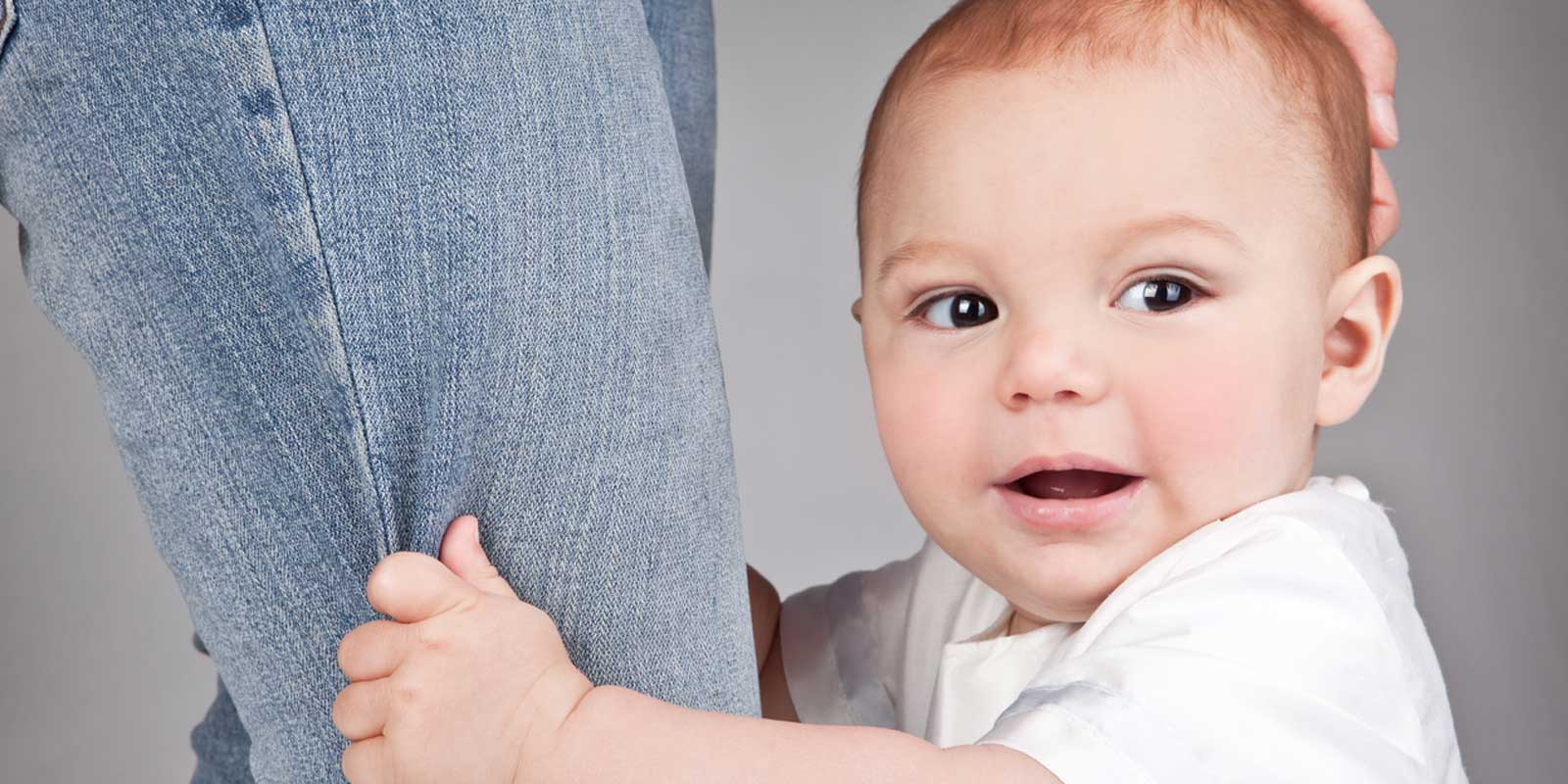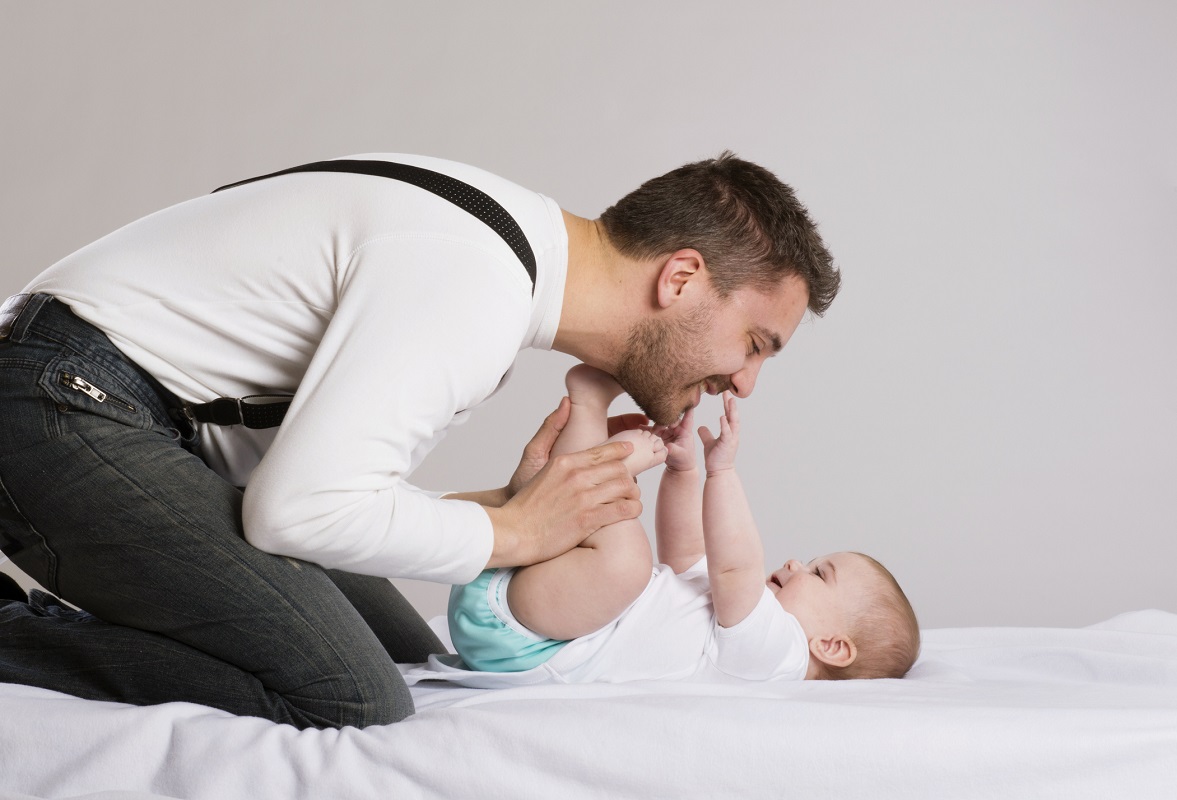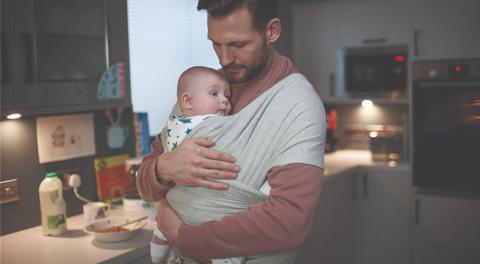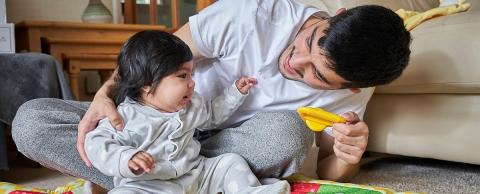Some babies are more 'clingy' than others and it can be difficult to understand why your baby suddenly cries and hangs on to you, when a few months ago they were happy to be cuddled by anyone. If this is something you’re experiencing, here are some tips to help.
Why do babies become ‘clingy’?
At around six or seven months, babies can tell the difference between faces they know and strangers. Then at about ten months, they can become ‘clingy’, hanging on tight to the people they know and trust and becoming wary of anyone new.
As it often coincides with the time when the baby could crawl away or start to walk, they become more clear in their need to stay close to someone they trust.
Top tips for helping 'clingy' babies feel secure
Tip #1: Give them reassurance
If your baby’s clinging to you like a vine, giving them lots of reassurance will help calm them. Talk to them gently and give them lots of cuddles.
Tip #2: Give them time
Give them time to get to know new people and new places. Introduce them to your friends, family and other children gradually and allow time for them to accept them.
Tip #3: Stay calm
You might feel anxious, worried or cross at this new phase, but your baby will pick that up, so try to stay calm and remember this is just a new phase as your baby learns, and soon they will feel more comfortable again.
Tip #4: Let them get used to change gradually
If you need to be away from your baby for any reason, it’s a good idea to help them get used to this gradually. Keep the first separations short at first, and be sure to welcome them back with lots of hugs and cuddles.
Tip #5: Be prepared to comfort them
If you’ve been away from your baby, don’t be surprised if they turn away or cry when they see you, and be prepared to comfort them. You can build up the time you’re apart as they get used to new people or a new environment and learn to trust that you will be back soon.
Tip #6: Don’t be tempted to sneak away
It isn’t a good idea to sneak off when they’re not looking, as then they just learn not to leave your side even for a second! Tell them you are going and leave calmly. If you get upset, this will confirm that they’re right to worry.
 Activities & Play
Activities & Play Behaviour
Behaviour Childcare
Childcare Development & Growing Up
Development & Growing Up Family, Friends & Relationships
Family, Friends & Relationships Feeding Your Baby
Feeding Your Baby Food & Eating
Food & Eating Health & Safety
Health & Safety Mental Health & Wellbeing
Mental Health & Wellbeing Money & Work
Money & Work Online Behaviour & Safety
Online Behaviour & Safety Pregnancy & First Days
Pregnancy & First Days School & Education
School & Education Sleep
Sleep







 Mental Health & Wellbeing
Mental Health & Wellbeing
 School & Education
School & Education